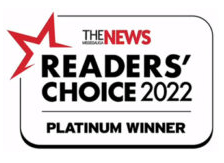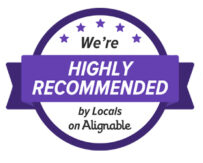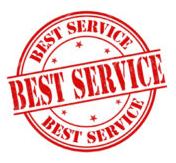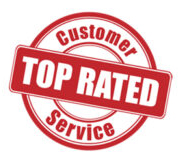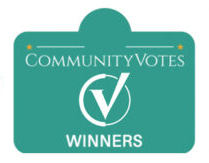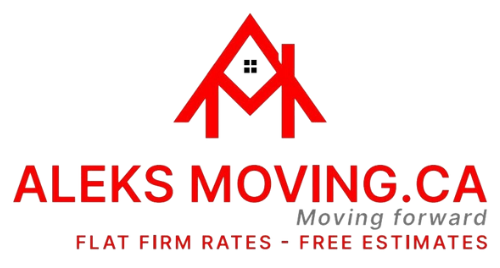In a world where every square foot matters and the need for space-efficient living is paramount, many find solace in the convenience of storage solutions. The age-old question echoes louder than ever: How Much Does It Cost To Keep Items In Storage? Whether you’re considering decluttering your home, safeguarding belongings during a move, or simply seeking a temporary home for your treasures, understanding the intricacies of storage costs is key to making informed decisions. Join us as we unravel the layers of storage expenses, explore factors that influence costs, delve into the price tags of storing common items, and provide valuable tips to ensure your storage journey is not only organized but also budget-friendly.
Cost Considerations
Average Cost for Different Sizes and Types of Units
The average cost for storage units varies significantly based on size and type. Smaller units, suitable for storing a few boxes or small furniture items, generally come with lower monthly costs. On the other hand, larger units designed to accommodate the contents of an entire household might command higher prices. Additionally, the type of unit, whether standard or climate-controlled, influences the average cost. Exploring these averages gives you a clearer picture of what to expect and ensures you select a unit that meets your storage requirements without breaking the bank.
Monthly Costs vs. Longer-Term Costs
One crucial aspect of managing storage expenses is understanding the dynamics between monthly costs and longer-term commitments. While monthly rentals provide flexibility, they often come with higher monthly fees. On the contrary, opting for a longer-term storage commitment can yield cost savings, with facilities offering discounts for extended contracts. Balancing your storage needs with your budget involves assessing the duration you anticipate requiring the storage unit and weighing the cost-effectiveness of monthly versus longer-term agreements. By navigating this aspect strategically, you can secure the storage solution that best fits your financial plan.
Factors Influencing Storage Costs
Location
Location stands as a pivotal determinant in the realm of storage costs. Whether you’re considering a self-storage unit in an urban, suburban, or rural setting, the geographical location plays a significant role in pricing. Urban areas often boast higher storage unit costs due to the demand for space, while rural locations may offer more budget-friendly options. Navigating the impact of location on storage costs is key to finding a balance between accessibility and affordability.
Type of Storage
The type of storage unit chosen is a critical factor influencing storage unit cost. Standard self-storage units and climate-controlled storage units cater to different needs, with the latter often incurring higher expenses due to the added climate regulation. Understanding the distinctions between these types of storage units allows individuals to make decisions based on the specific requirements of their stored items, ensuring both cost-effectiveness and the preservation of belongings.
Unit Size
Choosing the right unit size is a fundamental consideration when evaluating storage unit costs. Larger units naturally come with higher monthly fees, while opting for a size that exceeds your needs results in unnecessary expenses. Assessing the amount of space required for your belongings and selecting an appropriately sized self-storage unit or even exploring options like portable containers can significantly impact the overall cost, making your storage experience both efficient and economical.
Common Items Stored and Their Costs
Furniture
Storing furniture involves not only selecting the right size of the storage unit but also considering the rental period and any additional services offered by storage companies. Larger pieces may require more space, impacting the average storage unit cost. Some individuals opt for full-service storage for added convenience, while others prefer the flexibility of self-storage with the potential for extra security measures.
Electronics
The cost of storing electronics is influenced by factors such as the need for an indoor unit with climate control. Storage companies may offer specialized storage solutions for electronics to ensure their safety. Understanding the specific requirements for electronic items and any extra security features provided by storage facilities is crucial for both the preservation of the items and managing storage costs effectively.
Clothing and Textiles
When it comes to clothing and textiles, particularly sensitive to environmental conditions, opting for a climate-controlled storage unit is common. Storage companies often provide insights into the average storage unit costs for preserving clothing and textiles over an extended rental period. Individuals seeking to protect their wardrobes from the elements should consider these considerations when evaluating storage options.
Seasonal Items
Seasonal items, whether holiday decorations or sports equipment, often find their way into storage. The cost of storing seasonal belongings can vary based on factors such as the size of the items and the rental duration. Storage companies may offer specialized solutions for seasonal storage needs, and individuals can optimize costs by selecting the appropriate unit size and rental period, ensuring their items remain secure and accessible when needed.
Additional Fees and Considerations
Security Deposits
When considering the cost of storage units, it’s crucial to understand the role of security deposits. Many storage facilities require a security deposit upon rental, acting as a safeguard for potential damages or overdue payments. While these deposits add to the initial expenses, being aware of their existence allows individuals to budget effectively. Some storage providers may offer options to reduce or eliminate security deposits, making it essential to explore these possibilities when selecting a storage facility.
Insurance
Insurance coverage is a vital aspect of safeguarding belongings in storage and understanding the ins and outs of insurance policies is key. While some storage facilities may offer insurance as part of the rental package, renters should evaluate the adequacy of coverage. Renters insurance is another option that can complement or replace storage facility insurance, providing added protection. Delving into the details of insurance policies ensures that stored items are adequately covered, minimizing financial risks in unforeseen circumstances.
Access Fees
For those requiring frequent access to their stored items, understanding access fees is crucial for effective budgeting. While some storage facilities provide 24-hour access as part of the standard package, others may charge additional fees for extended or frequent access. Evaluating the necessity of such access and comparing access fees across different providers is essential. Balancing the convenience of 24-hour access with the overall cost of storage units ensures that individuals select a storage facility that aligns with their accessibility needs without incurring unnecessary expenses. Let us know more about the most valuable “Benefits of renting a storage unit when moving locally“!
Tips for Saving on Storage Costs
Decluttering Before Storage
Before embarking on the decision to store items, especially with the assistance of professional services like Aleks Moving company’s Milton movers, a crucial step is decluttering. Taking the time to assess and declutter possessions not only streamlines the storage process but can significantly impact the cost of storage services. By eliminating items that are no longer needed or used, individuals can optimize space, potentially requiring a smaller storage unit and reducing monthly costs. The decluttering process ensures that only essential items are placed into storage, making the entire storage period more efficient and cost-effective.
Long-Term vs. Short-Term Storage
When contemplating storage services, the choice between long-term and short-term storage has financial implications. Long-term storage often offers discounted rates for extended commitments, making it cost-effective for those planning to store belongings for a more extended period. On the other hand, short-term storage, billed on a monthly basis, may be more suitable for temporary storage needs. Weighing the monthly costs against potential discounts for longer commitments is key to choosing a storage period that aligns with both the duration of storage requirements and budget constraints.
Consider When To Choose a Storage Company
Choosing a storage company, whether it’s Aleks Moving or another service, involves considering various factors beyond just the cost. Assessing the reputation, security measures, and terms of service is vital. Some storage companies may offer flexible contracts, allowing individuals to rent storage services for a specific period of time. Evaluating these factors ensures a seamless storage experience, with the chosen company accommodating individual needs and providing the required level of service for the chosen period of time.
Conclusion
In conclusion, the cost of keeping items in storage involves a careful consideration of various factors. By understanding the influences on storage costs, being aware of additional fees, and implementing cost-saving tips, you can make informed decisions that align with your budget and storage needs. Remember, a well-thought-out approach to storage can not only save you money but also ensure a seamless and stress-free experience.
Ready to transform your storage experience? Let Aleks Moving be your cost-effective solution for securely storing your belongings. Say goodbye to hidden fees and hello to hassle-free storage that fits your budget – because safeguarding your items shouldn’t break the bank. Connect with Aleks Moving today for a storage experience that’s as intriguing as it is affordable.
FAQs: How Much Does It Cost To Keep Items In Storage?
Are there additional fees besides the basic rental cost?
Yes, additional fees may include security deposits, insurance, and access fees. Understanding these potential extras is crucial for budgeting and avoiding unexpected expenses.
How can I save on storage costs?
To save on storage costs, consider decluttering before storage, choosing the right unit size, and comparing prices from different facilities. These proactive steps can significantly reduce your overall storage expenses.
Is storage insurance necessary, and how much does it cost?
Storage insurance is highly recommended to protect your items, and costs vary based on coverage and value. While it adds to the overall expense, it provides valuable peace of mind in case of unforeseen events.
What’s the difference between long-term and short-term storage costs?
Long-term storage often offers lower monthly rates, but the total cost can accumulate over time. Short-term storage may have higher monthly fees but can be more cost-effective for shorter durations. Consider the duration that best suits your needs and budget.




